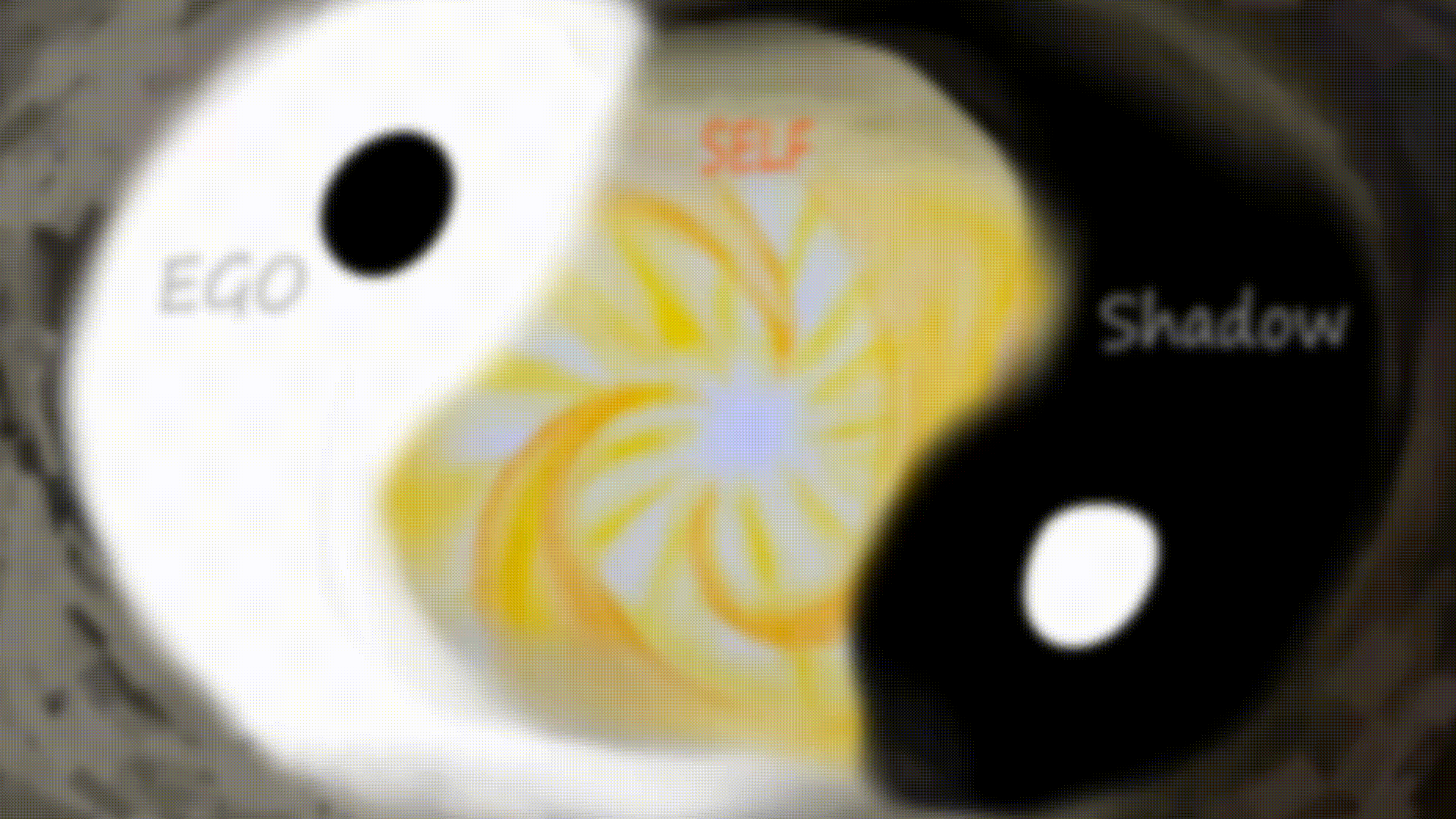About
Discover why Carl Jung’s work is still relevant today! From the concepts of ego and shadow to individuation and self-integration, Jung’s theories on the psyche are still influential in modern psychology and personal growth. Explore how Jung’s ideas on repression and the soul can help you understand yourself better in today’s world.
Table of Contents
Introduction
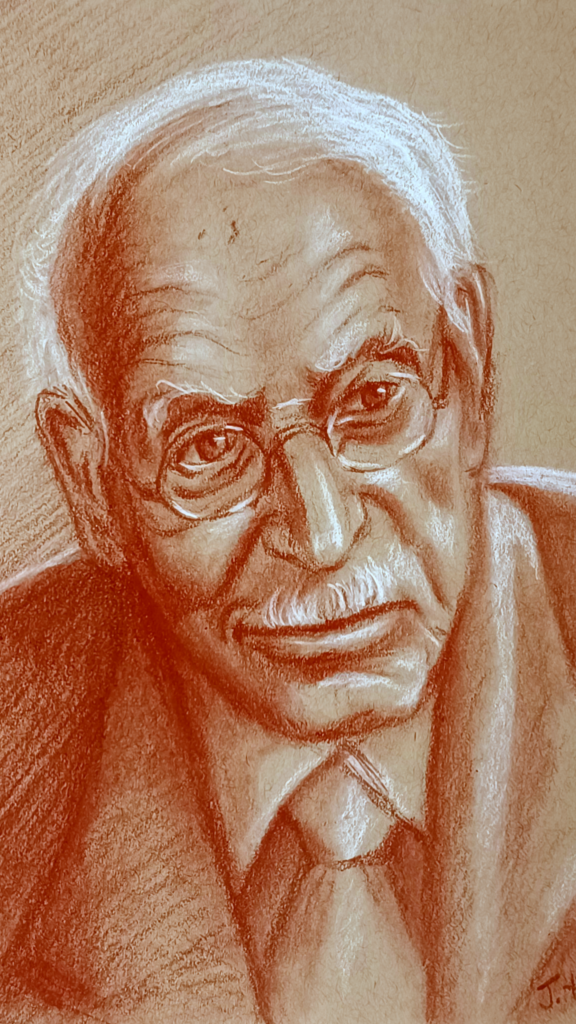
Why do we have irrational fears that keep us from relaxing and enjoying life? Where do they come from? And why do we find ourselves making the same mistakes over and over again? To answer this, we are going to dive into the world of Carl Jung, as he unravels the mysteries of YOUR psyche and helps you take control of YOUR life.
Jung’s revolutionary idea was simple yet profound. What you know about your conscious mind is merely the tip of the iceberg. Beneath it lies the unconscious, a vast, hidden realm of fears and rejected emotions which silently shape almost all your thoughts and actions.
So, how do you take back control over your life? Jung answers it by saying
‘Until you make the unconscious conscious, it will direct your life—and you will call it fate’.
Carl Jung
Jung’s Map of the Psyche
So let’s understand a basic overview of Jung’s map of YOUR psyche.

Picture your psyche as an expansive theatre landscape. At the surface lies the Conscious—a lively, sunlit realm where your everyday thoughts, emotions, and sensations roam freely. It’s the part of you that engages with the outside world—thinking, feeling, and reacting—all the things you’re fully aware about.
But beneath that stage surface lies an enormous, hidden world: the Unconscious. Imagine it as a vast, shadowy cavern teeming with forgotten memories, buried desires, and unknown instincts. This is the part of you that you barely know exists. Yet, it’s always there, shaping your thoughts, emotions, and actions without you realizing it.
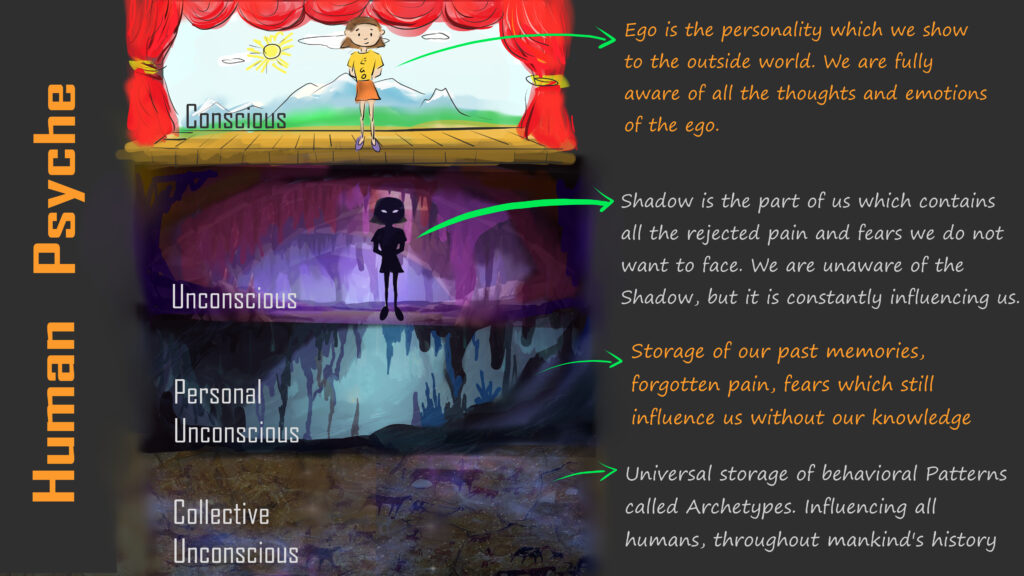
Ego
Back on the brightly lit stage surface, at the centre of your conscious mind stands the Ego—your lead actor. When you think, “I’m feeling happy,” or “I need to rest,” that voice identifying as “I” is your Ego. It is what gives you a sense of identity and individuality.
The Ego is the personality that the world sees of you. So it smiles, bows, and captivates the audience. It declares, “This is who I am,”.
Shadow
But just below this stage, in the depths of the caverns of the unconscious, there’s another figure. Enter the Shadow. This is the part of you hidden from the audience, even from yourself. The shadow embodies all the traits, emotions, and desires you do not want to face. If the Ego is the confident actor on stage, the Shadow has all the acting parts you have cast aside.
Example: Let's imagine that you are not a confident person and believe that being assertive about your opinions is selfish. This means that your Ego is playing the role of someone who is an overly accommodating person, one who avoids conflict at all costs, even allowing others to take advantage and abuse them. On the surface, you may seem like you are fine with this persona. But that excessively accommodating behaviour begins to cause resentment deep within. This suppressed assertiveness and unspoken frustration, which never gets the stage, is the Shadow.
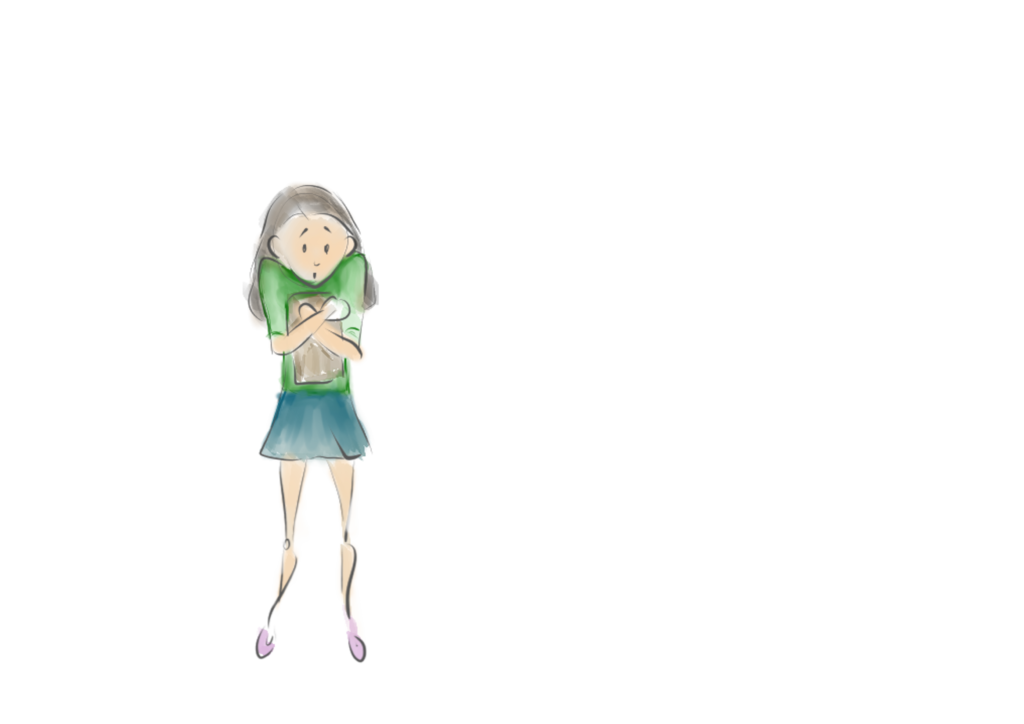
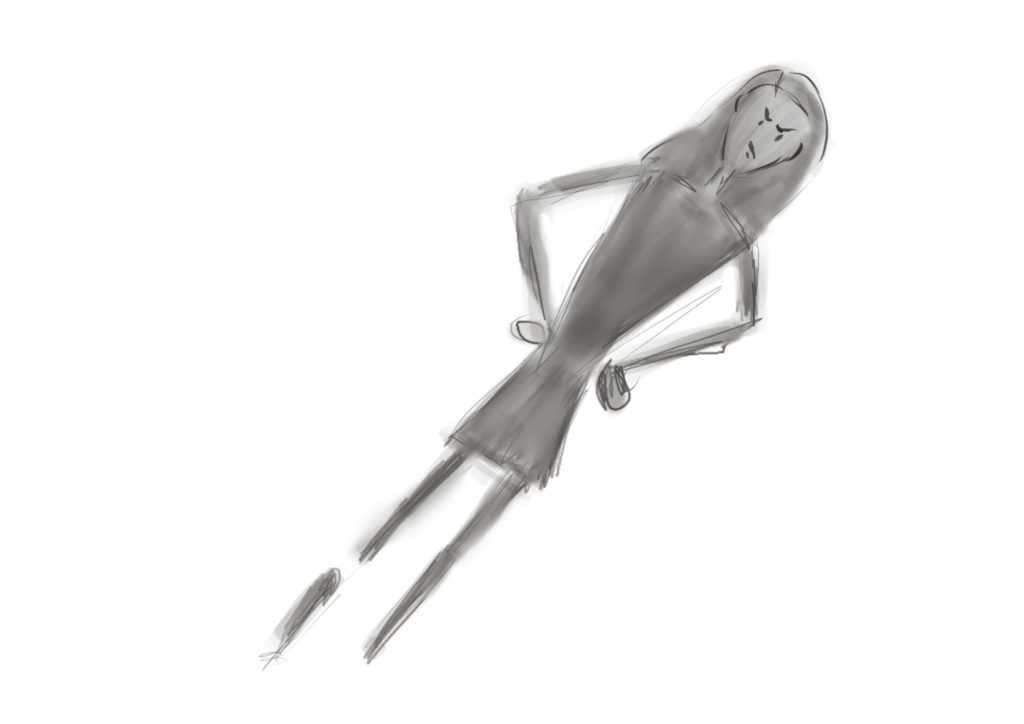
And here’s the conflict: the Ego clings desperately to its role, fearing that confronting the Shadow would shatter the carefully created image it shows to the world. The Ego whispers, “The show must go on,” but the Shadow calls from beneath and says, “Face me!”
Thus, the Shadow is a hidden sanctuary for all your suppressed and repressed impulses. FYI: Suppression is when you consciously push unwanted thoughts aside—so in our previous example, when there is an argument and the submissive ego feels a lot of anger, but consciously refuses to let it show, this is suppression.
Repression happens when extremely painful thoughts are unknowingly buried into the unconscious, e.g. For instance, an entire childhood trauma can be wiped from conscious memory so the child can continue to function normally in the world. But the trauma itself lies in the unconscious and manifests as anxiety or relationship struggles in adulthood due to their repressed trauma.
The shadow has a lot of unwanted negative feelings, resentments and pain. So does that mean that the Shadow is evil? Should we work on getting rid of the shadow because it has so many negative aspects?
Actually … No! We should do the exact opposite. The shadow needs to be acknowledged and accepted into our conscious psyche. It is the balance of your ego. In our previous example of the overly submissive ego, acknowledging the shadow means recognising the anger we have due to the excessive submissiveness and striking a balance between being accommodating and standing up for yourself. So while the Ego fights to maintain control, it ACTUALLY the Shadow that holds the key to your authenticity, growth, and healing.
Now, as you wander further into the caverns of the Unconscious, you will discover the hidden realm of the Personal Unconscious. This is the world of all your life’s forgotten treasures, wounds and memories which are also influencing you silently.
But this isn’t all! There is yet another deeper realm beyond this, called the Collective Unconscious. This isn’t your personal storage of memories; it’s a vast, shared repository of human collective consciousness across all human history. This is where universal patterns of behaviours are stored. Jung called these behavioural patterns archetypes. One such archetype is the Hero Archetype. A great example of this is the character of Harry Potter. He always fought for the good and never gave up, even when he faced certain death.
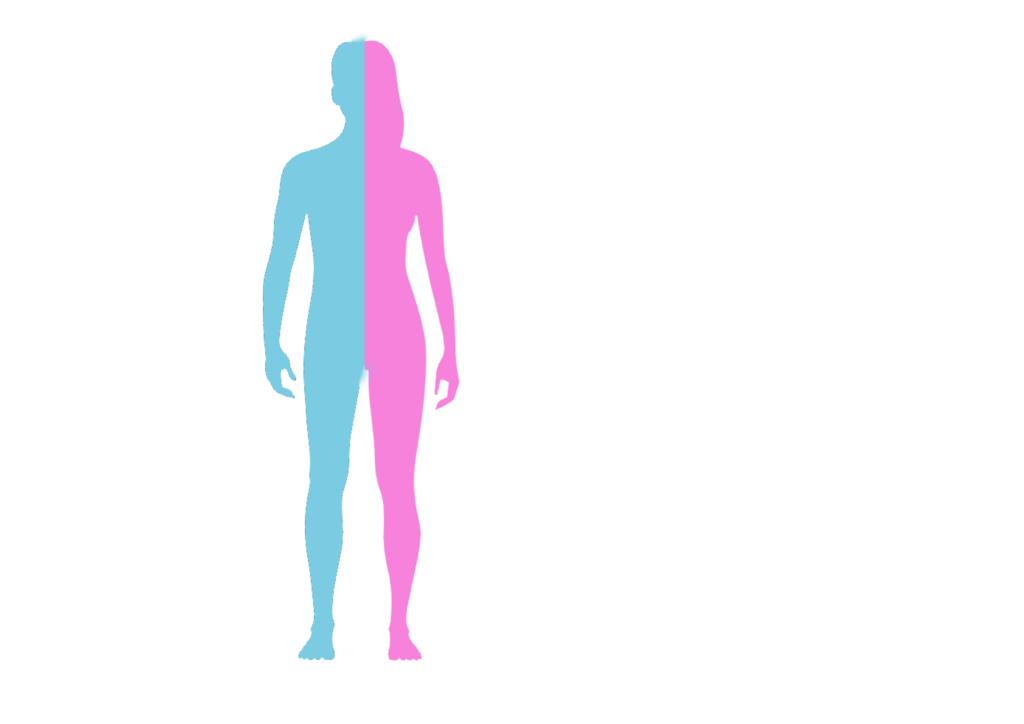
Jung identified several such archetypes, but two worthy of mention are the Anima and the Animus. The Anima, symbolizing the feminine qualities in every man, is filled with emotional strength and intuition. The Animus is the hidden masculine traits in every woman, filled with assertiveness and decisive logic. And they exist in all humans irrespective of their biological gender. And becoming aware is the key to our own inner harmony.
But despite all these actors in the theatre of your psyche, you are not doomed to just remain their eternal puppet.
Jung offered a path out of this theatrical production—a journey he called individuation. By slowly breaking the barrier of the unconscious and allowing each of these players to come on to the stage of the conscious mind, you unite the fragments of yourself: the light and shadow, the masculine and feminine, the conscious and unconscious.
And as you reconcile your conscious and unconscious aspects, you will become aware that their constant chaos was a thick cloud covering something else at the centre of yourself….And as this cloud gets thinner and thinner, you will realize a brilliant being behind it all …. That is your Soul! Jung called this the Self, and it is the purest essence of who you truly are. He said the Self is present from the moment you are born, a quiet observer at the centre of your being.
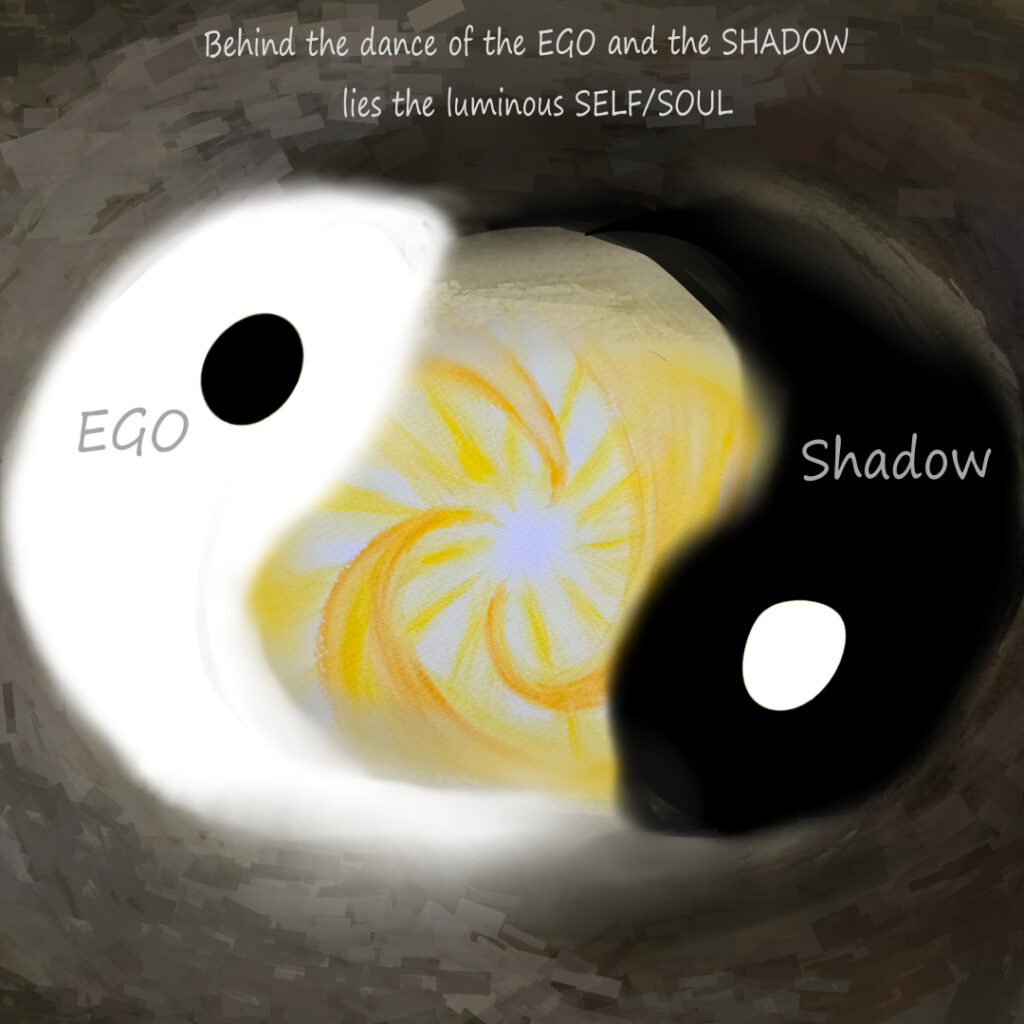
But as life shapes you, and you develop your likes and dislikes, the Ego emerges, carving out preferences, fears, and identities. The Ego becomes a mask, disconnecting you from the Self. Yet the Self remains, waiting patiently for the moment you’ll rediscover it. But the Ego is a requirement for your interaction with the world. But when we hold onto an identity and get attached to it, even if it is a good one, it will block us from letting go and seeing the Self. Once the Self comes to the forefront, the ego becomes a tool in its hands, and your inner harmony is never lost.
On a side note, if you are familiar with Joseph Campbell’s Hero’s Journey, you will immediately see the parallels here.
So while we all might not have a degree in psychology, we can try to take back control over our lives by beginning to watch the patterns we repeat in life. And by reflecting our own thoughts and gently bringing into awareness those feelings of pain and fear, we are trying to shove away. Because the prize which Jung proposes awaits us is nothing less than our soul itself!
We have come to the end of another diary entry. Carl Jung’s insights remain a testament to the power of looking inward and embracing the full complexity of what it means to be human.
Until we meet again for another insightful video, let’s part with a quote from Jung.
Your vision will become clear only when you look into your heart. Who looks outside, dreams; who looks inside, awakes
Carl Jung
